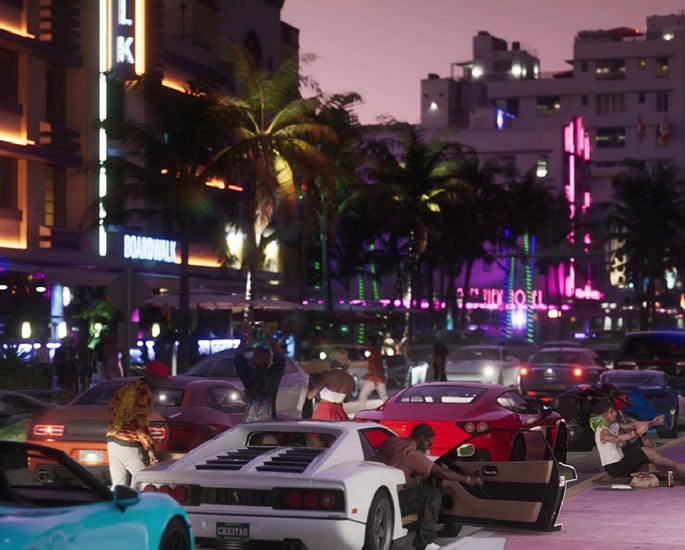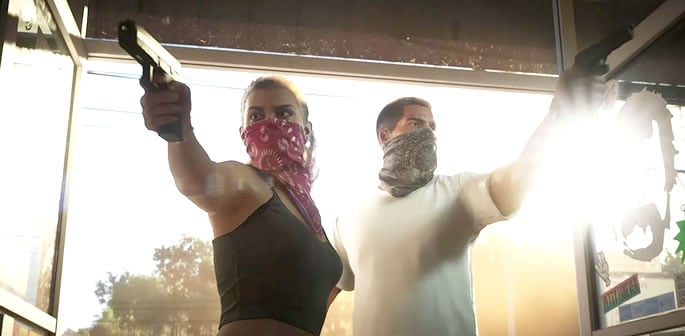In many ways, Rockstar doesn’t need to catch up
After more than a decade of waiting, Grand Theft Auto VI has been delayed once again.
The highly anticipated game will now release on November 19, 2026, six months after its previously scheduled May date.
It is the game’s second delay and for fans, it’s yet another test of patience.
But beyond disappointment and rescheduled corporate forecasts lies a bigger question: has the world moved on from what GTA represents? Can a series that last defined gaming culture in 2013 still feel fresh in 2026?
That uncertainty isn’t unfounded.
GTA V already felt somewhat retrospective when it launched, a cynical satire of the American dream built on mechanics that hadn’t evolved much since 2008’s GTA IV.
It was an enormous success, yes, but its systems were familiar. You drove, you shot, you explored, and you occasionally played tennis. The world was bigger, but not necessarily different.
Now, 13 years later, the expectations are immense. The gaming landscape has shifted dramatically, both in how players engage with stories and what they expect from open worlds.
Yet, paradoxically, the same industry that evolved around Rockstar’s legacy may still be defined by it.
The Slow Revolution of Open-World Games

At first glance, GTA VI risks feeling like a relic. Open-world games have changed, or at least, they were supposed to.
Players have seen titles like The Legend of Zelda: Breath of the Wild, Elden Ring, and No Man’s Sky redefine what freedom in a digital world looks like.
These games encouraged exploration over direction, curiosity over instruction. But for every innovative step forward, much of the triple-A industry has clung to formula.
Since GTA V, many open worlds have expanded in scale but stagnated in design.
Climbable towers, skill trees, HUD-heavy interfaces, and endless side-quests have replaced genuine innovation.
Even as games like Ghost of Tsushima tried to strip the clutter away, they did so through features reminiscent of GTA’s DNA – sat-navs turned into “guiding winds” and maps built to shepherd players between icons.
In many ways, Rockstar doesn’t need to catch up because the genre hasn’t truly moved on.
The irony is that the studio helped build the template everyone else copied, and then refined it with Red Dead Redemption 2.
Despite its slow pace and heavy realism, that 2018 release remains one of the most detailed, immersive worlds ever created.
If GTA VI applies the same precision to its modern setting of Vice City, it may not need to reinvent anything at all.
The GTA Online Question

Beyond the story and mechanics lies Rockstar’s golden goose – GTA Online.
What began as a multiplayer mode became a phenomenon: a persistent digital world where millions still log in to race cars, host heists, and socialise.
It is more of a community than merely a game, which presents Rockstar with both a challenge and an opportunity.
After the mixed response to Red Dead Online, there’s pressure to evolve without losing what made GTA Online successful.
Its influence is undeniable. Before “metaverse” became a buzzword, GTA Online had already built one – a shared social space driven by user creativity and endless content updates.
That success gives Rockstar freedom. Even if GTA VI’s single-player story somehow feels familiar, its online counterpart could once again set the standard for virtual living.
Given the financial power of GTA Online, it’s likely Rockstar will prioritise expanding that ecosystem.
The studio doesn’t need to chase trends like battle royales or live-service experiments. It only needs to make a bigger, better playground for the millions who already treat Los Santos as their second home.
Can Its Satire Still Land?

The narrative question is trickier. Grand Theft Auto has always thrived on satire: skewering politics, capitalism, and pop culture.
But satire has a shelf life.
In an era where culture shifts faster than games can release, there’s a risk that GTA VI’s jokes could already feel dated by the time it arrives.
If Rockstar chooses to target specific events or personalities, it may struggle to stay relevant. Yet timeless satire doesn’t need names or brands.
The studio’s past works explored deeper themes: ambition, greed, loneliness, and disillusionment.
Those remain universal. Whether mocking influencers or institutions, Rockstar’s humour works best when it exposes systems rather than individuals.
And despite the changing world, certain realities haven’t moved on. Power still corrupts. Dreams still crumble.
The same social and economic forces that shaped the original GTA narrative persist, only magnified by technology and inequality. If the series leans into those constants, its satire could hit harder than ever.
Ultimately, GTA VI’s biggest competitor isn’t another open-world game; it’s itself.
Grand Theft Auto V sold over 220 million copies. Its influence runs so deep that studios still measure success by how close they can come to Rockstar’s formula.
When one game defines a genre, it becomes the gravitational centre of an entire industry.
That’s why GTA VI, no matter how late it arrives, can never truly be outdated.
The game doesn’t have to revolutionise design or storytelling to dominate conversation; it simply has to meet Rockstar’s own impossible standards. Its presence alone will reshape expectations, as it always has.
The real question isn’t whether GTA VI can keep up with gaming’s evolution, but whether gaming can ever move beyond GTA.
Because for all its delays, all its hype, and all its history, Rockstar’s world remains the one everyone else still drives toward.






























































